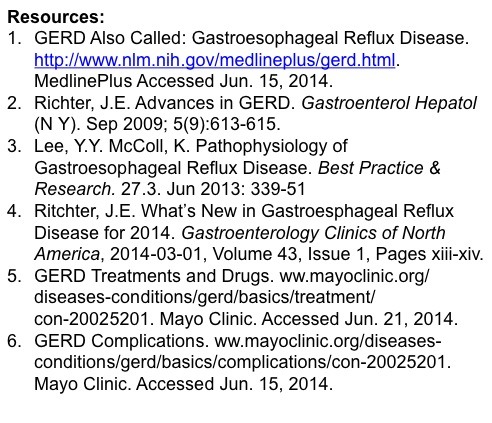Sage is here to help.
Feel like you could be eating better? Not sure what to change or where to look? Sage Nutritious Solutions make it easy for you to discover the wide, wonderful world of balanced, healthy, bangin' food.
Nutrition + Acid Reflux (GERD)
Have you ever eaten a particularly greasy or spicy meal and experienced a burning sensation from your stomach back up to the throat? Did it feel predominantly in your chest? You may be more familiar with the term heartburn, however, this is clinically referred to as gastroesophageal reflux or simply GER. GER may affect us more as we age but is something that all age groups may suffer from, including infants and children. GER may be the norm for some people, simply a process of aging, or something to "deal with" - but GER should not be the norm for you and is not something you have to live with. If you experience symptoms of GER more than twice per week you most likely have GERD (gastroesophageal reflux disease) and should consult with your physician (1). Frequent GER and GERD can be treated - before you settle for tums, Pepto-Bismol, and other over the counter remedies that treat the problem after the fact, consider ways to prevent the symptoms before they strike!
What exactly is GER? Your stomach is a naturally acidic environment, which is necessary for the digestion of certain nutrients that you consume. GER is the reflux or backflow of acid from your stomach to your esophagus (throat). A burning sensation felt in the chest area is the most common symptom of GER, however may not always be the case. Other concerns associated with GER include swallowing difficulties, hoarseness, and coughing. Obese people are much more likely to suffer from GERD than individuals of healthier weights because of the pressure created from excess weight and hormonal imbalances. Other nutritional and lifestyle factors such as diet, activity level, and sleeping behavior can contribute to GER as well as genetics (1-3).
Nutrition can help in preventing and managing reflux , but there are no one-size-fits-all recommendations. Studies that look into food elimination as a way to improve reflux have not been consistent (2). Certain foods may bother or aggravate reflux for one individual, while a different food may upset another. However, the most common foods that have been established as potential problem foods for individuals with reflux include: full fat dairy/dairy products (such as cheese), fried/greasy foods, chocolate, citrus fruits and juices, spicy foods, tomatoes/tomato based foods, caffeine, carbonated drinks, and alcohol (1). Because everyone is so unique and the food we consume affects us all so differently, the best way to determine what foods intensify or bother an individual’s reflux is to keep a food journal and record the foods consumed followed by any symptoms after each meal. This is a great way to identify any trends and to pin point foods that are responsible for exacerbating reflux for you specifically. Once you figure out which foods in particular bother you, then you can make appropriate dietary modifications and avoid those foods.
Two lifestyle factors that seem to contribute to reflux are related to weight and sleep habits. When corrected, they show consistent and positive results in improving reflux symptoms. People with GERD who adhere to successful weight loss plans are more likely to reduce and or eliminate reflux symptoms all together (2, 4). The Slice Plan is a great approach to healthy weight loss, as is consulting with a Registered Dietician. Furthermore, going to bed within 2 hours after eating and/or lying in a flat position allows for acid reflux to occur more readily. People who avoid eating a couple hours before bed and sleep in a "head of bed" elevated position can prevent overnight GER from taking place (2).
It is important to note that nutritional and other lifestyle changes may not be enough to relieve symptoms of reflux and this is when medical intervention becomes necessary. It is extremely important for you to discuss your symptoms with your physician so that they can determine if prescription medications, or in some extreme cases surgery, is appropriate. Some of these medications can be purchased over the counter and should be taken regularly, but only under the supervision of a physician. They include:
• Omeprazole/Pantoprazole: Proton pump inhibitors (PPI) that reduce acid production in order to allow damaged tissue in the esophageal to heal
• Ranitidine/Famotidine: Histamine H2-receptor blockers also target acid production, however are not typically as strong as PPIs.
• Maalox/Mylanta/Tums/Rolaids: Antacids work to neutralize stomach acid to provide quick relief however long term use can cause diarrhea or constipation (5)
GERD is now one of the most common chronic conditions observed in the western hemisphere (3). If left untreated, GERD can lead to prolonged esophageal inflammation that can compromise your health further. Esophageal strictures, narrowing of the throat, can result from extended exposure to gastric acid. These strictures are essentially damaged and scared tissues left behind and make swallowing food difficult. Esophageal ulcers can occur from the erosion caused by acid reflux. Barrett’s esophagus can also occur in which the tissue in your throat undergoes physical changes and increases your overall risk for esophageal cancer (6).
Don’t settle for reflux as normal or usual; handle potential issues early on so that you may always enjoy Happily Eating!
 Alexandria Wolz, Cooperative Intern for:
Alexandria Wolz, Cooperative Intern for:
